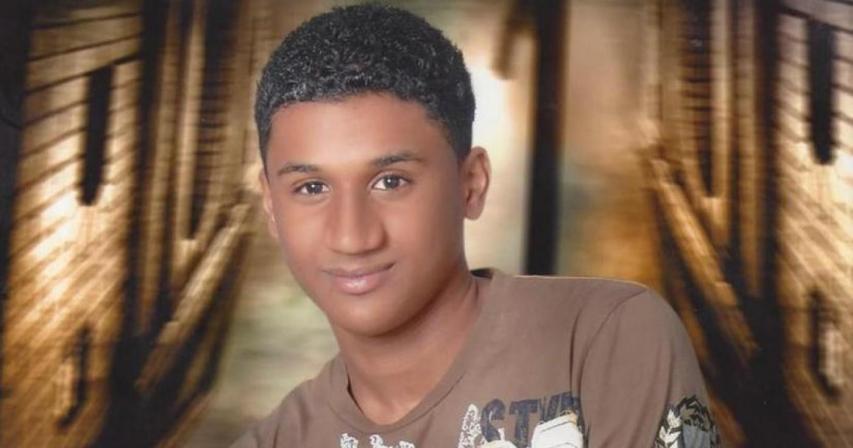Saudi Arabia executes man arrested for protesting as a teenager
- 4 years ago

Mustafa Darwish's family says 26-year-old killed because of a photograph found on his phone during a 2015 crackdown on anti-government protesters
Saudi Arabia’s interior ministry said on Tuesday that the kingdom had executed Mustafa Hashem al-Darwish, who was convicted over participation in anti-government protests in the Eastern Province when he was 17.
The family received no advance notice of the execution, and found out about it online, the British rights group Reprieve said in a statement.
Earlier this month, a Saudi court upheld the death sentence against Darwish, who comes from the minority Shia community. He was 26.
According to court documents, he was subjected to prolonged pre-trial detention, torture and a grossly unfair trial.
Darwish's relatives had warned that there was an "immediate risk" of his death sentence being carried out.
The family has asked British Foreign Secretary Dominic Raab to press for his release during his visit to the kingdom in June, but it was not clear whether Raab brought up Darwish’s case in his meeting with the Saudi crown prince.
The execution took place on the same day as a visit by the British minister for international trade, Ranil Jayawardena, to Riyadh on Tuesday.
According to the Saudi Press Agency, Jayawardena met with Gulf Cooperation Council (GCC) Secretary-General Nayef Falah Mubarak al-Hajraf, who "stressed the importance of the GCC-British relations and the promotion of the economic and trade cooperation within the framework of the joint action plan between the Council and the United Kingdom".
Middle East Eye contacted the UK's Department for International Trade for comment on whether the minister raised the issue of Darwish's execution prior to and during his visit, but had not received a response by the time of publication.
According to Reprieve, Darwish “was placed in solitary confinement and beaten so badly that he lost consciousness several times. To make the torture stop, he confessed to the charges against him”.
Darwish recanted his confession during his trial, explaining that it was extracted under torture. The court was also aware of the fact that Darwish was a child at the time the alleged offences were committed, according to the rights group.
According to a statement by Darwish’s family issued on Tuesday, police confiscated his phone when he was arrested with two friends in 2015. After his release, he was later detained in relation to a photo allegedly found on his phone showing protests years earlier.
“How can they execute a boy because of a photograph on his phone? Since his arrest, we have known nothing but pain. It is a living death for the whole family,” the family was quoted by Reprieve as saying.
Reprieve director Maya Foa said: “It is not enough for Saudi Arabia’s partners to ‘raise human rights issues,’ as British Foreign Secretary Dominic Raab reportedly did on his recent visit to the kingdom. They need to raise specific cases, and make clear that executions for childhood crimes will not be tolerated.
"Otherwise Abdullah al-Howaiti, arrested aged 14 and sentenced to death at 17, could be next.”
In April 2019, six young men sentenced to death for crimes committed as children were among those killed in a mass execution of 37 people.
Saudi authorities have repeatedly offered assurances that they have put an end to the death penalty for children and people convicted of crimes allegedly perpetrated as minors.
In April, Saudi King Salman issued a royal decree ending death sentences for crimes committed as a minor, instead making the maximum sentence 10 years in a juvenile detention facility.
And last year, Saudi Arabia's state-backed Human Rights Commission (HRC) also said the kingdom would stop sentencing to death people who committed crimes while minors, citing a royal decree.
However, that decree was not reported by state media, nor published in the official gazette as would be normal practice. Rights groups have raised concerns about its implementation and previously warned that several youths still face the death penalty.
Meanwhile, Human Rights Watch has noted that despite the royal decree regarding the end of death sentences for minors, the provision does not apply to all crimes.
Two categories under Saudi Arabia's interpretation of Islamic law that still offer death sentences to juveniles are "houdoud", or serious crimes that carry a prescribed punishment, including terrorism, and "qisas", or retribution, usually for murder.
In February, the Saudi authorities told the UN Human Rights Council that “anyone who commits a death-eligible crime as a child" will be subject to “a maximum sentence of ten years in a juvenile institution”.
“The execution of Mustafa al-Darwish once again shows that the kingdom’s claim to have eliminated capital punishment for childhood crimes is not true,” Reprieve said.
Comments